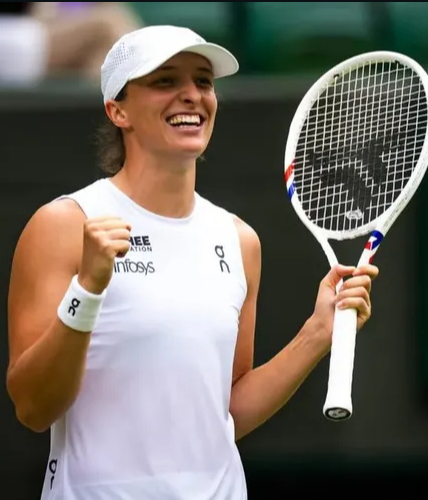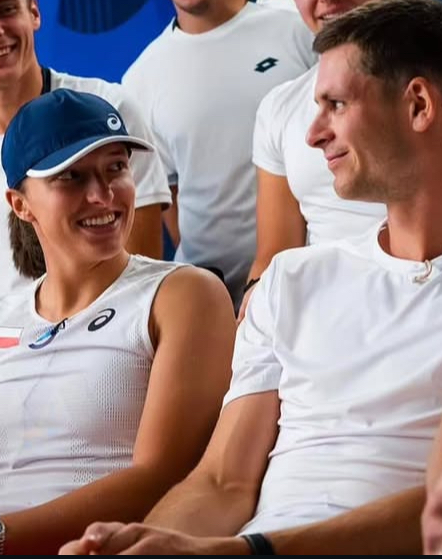Whispers have been growing louder: is Iga Świątek’s most talked-about relationship strictly professional — or is there something deeper simmering beneath the surface? The Polish world-beater has been quietly dominating headlines on court, but it’s the chemistry in her support team that’s stirring the real intrigue off it.
Świątek’s success story is partly textbook preparation: relentless practice, careful scheduling, and smartest-of-the-smart coaching choices. But anyone paying attention has noticed one constant presence at her side — a figure who has been more than a footnote in the champion’s rise. Their rapport is effortless, sometimes startlingly visible in tense moments, and it raises a simple question: how close is too close when your mental coach is also your most trusted confidante?

There’s nothing scandalous on the surface. The bond grew organically: late-night strategy calls, emotional debriefs after difficult losses, and visible public support during pressure-cooker matches. Still, familiarity breeds conversation. Fans and pundits alike have started to wonder whether this level of emotional intimacy crosses the blurred line between professional support and personal dependence. Is it a textbook example of a winning partnership — or a potentially risky fusion of roles?
Let’s be clear: boundaries in elite sport blur more often than we admit. Athletes and their closest staff spend more time together than with many family members. When the stakes are Grand Slams and national pride, emotional investment becomes inevitable. And yet, high performance sport also demands clear-eyed objectivity. If a coach, psychologist, or key staffer becomes emotionally enmeshed, decision-making can shift from clinical to sentimental — and that’s where concerns begin.
So what’s the fallout if lines are crossed? For one, it can change how a player copes under pressure. Emotional crutches are comforting until they aren’t, and an overreliance on one person can make a champion brittle when that person isn’t present. On the flip side, a deep, trust-filled relationship can be the secret weapon that turns talent into a dynasty. The difference between a dependency and a partnership often comes down to self-awareness and team structure.
Right now, Świątek’s camp appears focused and composed — her results speak for themselves. But the drama of elite sport thrives on speculation, and this relationship fuels plenty of it. Will she keep the status quo and ride the chemistry to further glory? Will fresh voices be brought in to rebalance perspective? Or will fans continue to read between the lines, hungry for a definitive reveal?
One thing is certain: this story isn’t about gossip. It’s about the tricky psychology behind sustained excellence — and the fragile human connections that power it. Keep watching the box at the side of the court; sometimes the most important match happens off the grass.
